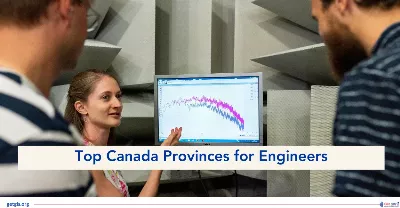Netherlands Education System and Grading System in the Universities
Updated On
-
Copy link
-
-
Planning to study in the Netherlands? Here is what you should know about the Netherlands Education System and Grading System in Netherland Universities!
Limited-time offer : Access a free 10-Day IELTS study plan curated for you

Table of Contents
Curious about the Netherlands education system and how grading works in their universities? Join us as we unravel the intriguing landscape of higher education in the Netherlands, answering burning questions about university life and the secrets behind those elusive grades. Let's dive into a world where tulips meet textbooks, and bikes share the road with academic curiosity.
How Does the Education System in the Netherlands Work?
The education system in the Netherlands is highly regarded for its quality and flexibility. It is divided into 3 main stages: primary education, secondary education, and higher education

1. Primary Education
Primary education in the Netherlands is compulsory for children aged 5 to 12. It is divided into eight grades, during which children learn the basics of reading, writing, arithmetic, and other subjects. At the end of primary education, students take the Cito test, which determines their placement in secondary education.
*Cito: The Cito exam is an independent assessment of final-year Dutch primary school pupils.
2. Secondary Education
Secondary education in the Netherlands is divided into three main tracks:
- VMBO: (Pre-vocational secondary education) VMBO is the shortest track, lasting four years, and it prepares students for vocational education or entry-level jobs. VMBO further comprises of 4 learning pathways such as:
- the basic vocational program (BL),
- the middle-management vocational program (KL),
- the combined program (GL)
- the theoretical program (TL)
- HAVO: (Senior general secondary education) HAVO is a five-year track that prepares students for higher vocational education
- VWO: (Pre-university education) VWO is the longest track, lasting six years, and it prepares students for university.
3. Higher Education
Bachelor's, master's, and Associate degrees are globally recognized titles awarded upon the completion of study programs at higher education institutions or universities.
You can pursue a Bachelor's degree program at either a higher education institution or a university. The two-year Associate degree program is available at higher education institutions. While a Master's degree program is commonly pursued at universities, some higher education institutions also offer master's programs.
Also Read: Master Degree in the Netherlands 2023 - 2024: Eligibility, Universities, Tuition Fee, and More
Higher Education System in the Netherlands
Higher professional education, offered by 'hogescholen,' is designed for students aged 17 and above, providing courses in various fields. There are 36 government-funded institutions and approximately 60 legal entities offering higher professional education.
In the Netherlands, higher education comprises three main types of institutions.
1. Government-funded institutions, encompassing 36 higher professional education institutions and 14 universities, receive funding from the Ministry of Education. These institutions adhere to government-approved fees and are subject to specific regulations.
2. 'Legal entities providing higher education' fall under the Higher Education and Research Act but don't receive direct funding from the Ministry. They determine their fees and admission policies independently, requiring students to hold specific certificates. While some receive funding, many operate without certain regulations of the Higher Education and Research Act.
3. Private-sector institutions, including foreign universities and business schools, operate outside the Higher Education and Research Act's jurisdiction, exempt from Dutch government regulations.
The below table illustrates the various types of degrees in the higher education system in the Netherlands:
Grading System in Netherlands Universities
The grading system in Netherlands universities is based on a numerical scale ranging from 1 to 10, with 1 being the lowest and 10 being the highest. This system is applied to all types of assessments, including exams, papers, and theses.
Grading Scale
Explore: Insights About The Netherlands Student Visa Requirements
Interpretation of Grades
- A grade of 6 or higher is considered a passing grade. Students who receive a grade of 5 or lower will need to retake the assessment.
- Grades of 9 and 10 are awarded very rarely. These grades indicate exceptional performance.
- A grade of 8 is considered a very good grade. This grade is commonly achieved by students who have demonstrated a strong understanding of the material and have completed all assignments to a high standard.
Types of Universities in the Netherlands
In the Netherlands, higher education institutions are categorized into two main types. Both types of institutions are highly regarded and offer excellent opportunities for students to pursue their academic and career goals.
1. Universities of Applied Sciences
Universities of Applied Sciences, known as "Hogescholen" in Dutch, are higher education institutions in the Netherlands. These institutions provide hands-on and profession-oriented education, emphasizing practical skills that can be immediately applied in professional fields.
- Emphasizes hands-on and profession-oriented education
- Focuses on acquiring practical skills and immediate applicability in the professional field
- Involves more contact hours and project-based learning
- Typically spans four years, incorporating mandatory internships
- Prepares students for professional roles
2. Research Universities
Research Universities in the Netherlands are higher education institutions that offer more theoretical and scientific education. These universities emphasize critical and analytical thinking skills, preparing students for academic, research, or professional roles.
- Offers more theoretical and scientific education
- Prioritizes critical and analytical thinking skills for research in specific fields
- Features fewer contact hours with a greater emphasis on independent study
- Typically completed in three years, often excluding internships
- Prepares students for academic, research, or professional roles
Also Read: Netherlands Tourist Visa Requirements: Documents and Fees
Navigate the Netherlands Education System with ����ÿ�մ���
As we unravel the intricacies of the Netherlands' education and grading system, remember that each grade is a testament to your academic journey. Whether you're pursuing practical skills at a University of applied sciences or delving into theoretical realms at a research university, the Dutch education landscape offers a diverse and enriching experience.
For those considering the Netherlands for their academic endeavors or contemplating a future in this vibrant country, the immigration consultant stands as your guiding companion. From study abroad programs to seamless PR assistance, opens doors to endless possibilities. Embrace the Dutch academic adventure with confidence, armed with the knowledge and support you need. Schedule a Free Consultation
- Tags
- Study Abroad
Limited-time offer : Access a free 10-Day IELTS study plan curated for you

Frequently Asked Questions
Is Education in the Netherlands free?
Is English taught in schools in the Netherlands?
What are the disadvantages of studying in the Netherlands?
Which country is better to study, Germany or the Netherlands?





